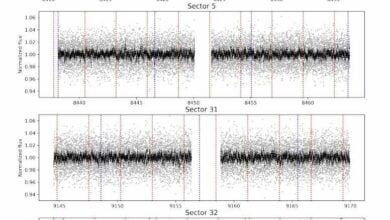
Number of cancers in adults under 50 has risen sharply worldwide
(ORDO NEWS) — Cancer has long been a part of human history. But a new review showed that something has changed recently.
Since 1990, the number of adults under the age of 50 with cancer has increased dramatically around the world.
What’s worrying is that the rise in early-stage cancers doesn’t seem to be slowing down - and improvements in screening don’t seem to be able to fully explain the trend.
“We found that this risk increases with each generation,” says one of the researchers, Shuji Ogino, a pathologist and epidemiologist at Brigham Hospital and Women’s Hospital in Boston.
“For example, people born in 1960 have a higher risk of developing cancer before age 50 than people born in 1950, and we predict that this level of risk will continue to increase in subsequent generations.”
That cancers are on the rise in today’s society is nothing new.
Researchers already know that since the 1940s and 1950s, there has been an increase in the number of people getting advanced cancer, which means developing cancer after age 50.
But the research team wanted to find out if the rate of early cancer is also increasing - or the rate of cancer in people younger than 50.
To do this, they needed to study people born in the 1950s and 1960s, but study their cancer rates since the 1990s.
The review looked at data from 14 types of cancer: breast, colorectal (CRC), endometrial, esophagus, extrahepatic bile duct, gallbladder, head and neck, kidney, liver, bone marrow, pancreas, prostate, stomach, and thyroid.
All of these cancers were on the rise among adults under the age of 50 between 2000 and 2012, according to global cancer data.
But the researchers went further and analyzed all available research that could shed light on possible risk factors for these cancers.
They also searched the literature for any unique clinical and biological characteristics of tumors in early-onset cancers compared to tumors in late-onset cancers diagnosed after 50 years of age.
The goal, citing the title of the article, was to find out: “Is early-onset cancer a global epidemic?”
According to the results obtained, the answer is positive. At least that’s how it seems since the 1990s.
“The incidence of late-onset cancer (those born in the late 19th and early 20th centuries) began to rise in the 1950s, while the incidence of early-onset cancers (those born in the mid-20th century) began to rise only in the early 1990s” , the researchers write in their paper.
So what has changed to make those who turn 50 after the 1990s more at risk for early onset cancer?
One of the most significant changes is the expansion of screening, which has undoubtedly contributed to an increase in the frequency of early detection of cancer.
But the team notes that this alone cannot fully explain the change - especially as some early-onset cancers are on the rise even in countries without screening programs.
“There also appears to be a real increase in the incidence of early forms of several types of cancer,” the group writes in their paper.
In addition to better detection of early-stage cancers now, evidence suggests that the “shift” in cancer rates actually occurred earlier, when those now in middle age were children, around the middle of the past. century.
It’s no secret that our lives have changed a lot since then - especially with the advent of highly processed foods - and the findings suggest that some combination of diet, lifestyle, weight, environmental exposure, and microbiome is involved.
“Among the 14 cancers we studied, eight were related to the digestive system,” explains epidemiologist Tomotaka Ugai of Harvard Medical School.
“The food we eat feeds the micro-organisms in our gut. Diet directly affects the composition of the microbiome, and ultimately these changes can affect disease risk and outcome.”
Other risk factors include sugary drinks, type 2 diabetes, obesity, sedentary lifestyle and alcohol consumption, all of which have increased significantly since the 1950s.
Interestingly, while adults’ sleep duration has not changed drastically over the past few decades, children sleep much less than they did a few decades ago, the team notes.
Of course, this study is far from conclusive. It is a review of existing research. Therefore, the team was unable to make any changes to it and directly measure their impact.
They also did not have much data from low- and middle-income countries, but suggest that “the increase in early-onset cancer is likely to be increasingly prominent in these countries, potentially leading to a global pandemic of early-onset cancer.” .
Now the team will continue their work and hope to be able to organize longitudinal cohort studies in the future, during which young children will be followed for several decades.
“Without such studies, it is difficult to determine what a person with cancer was doing now, decades ago, or in childhood,” Ugay says.
In the long term, we hope to be able to teach people to lead healthier lifestyles at an early age to reduce their risk of early cancer.
But there is still a lot of work to be done to fully understand how we got to this point and where to go next.”
—
Online:
Contact us: [email protected]
Our Standards, Terms of Use: Standard Terms And Conditions.









